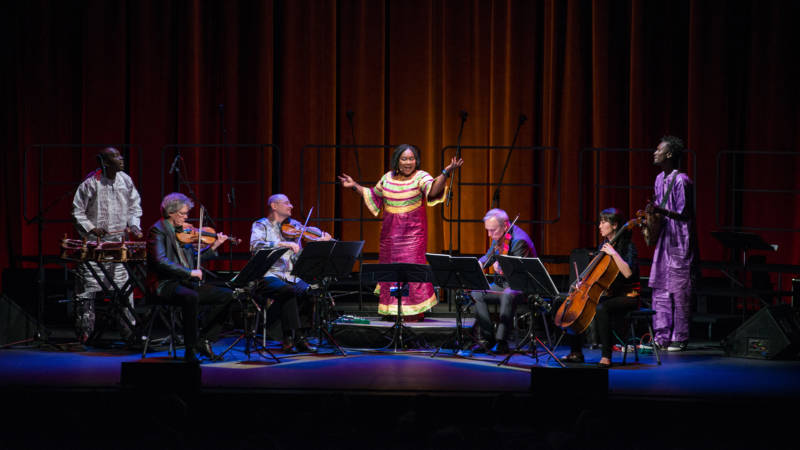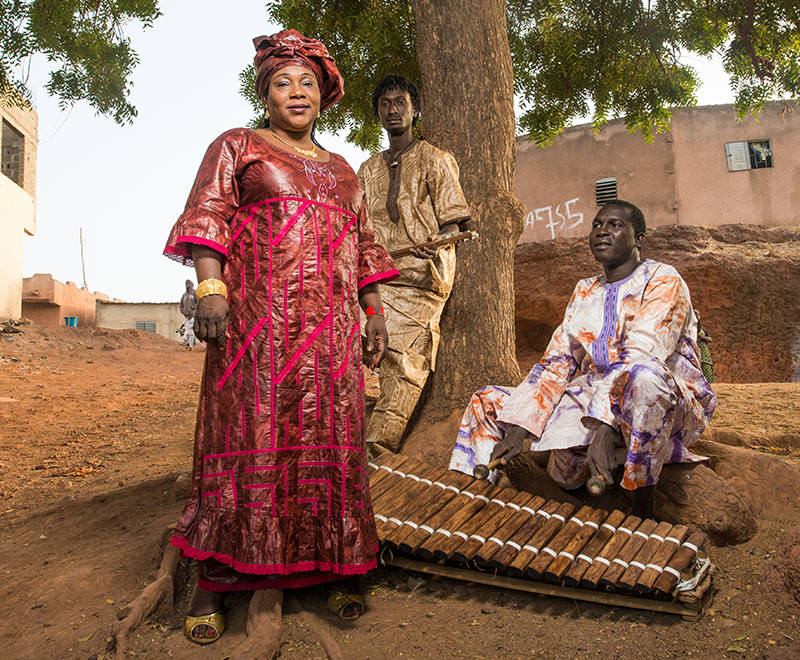Last month, the members of Kronos Quartet found themselves scrambling to change their festival’s itinerary after a headliner’s visa was unexpectedly delayed.
For their annual Kronos Festival, the string ensemble was set to premiere Tegere Tulon, a new work they commissioned from Malian composer Hawa Kassé Mady Diabaté. Diabaté had been approved to come to the United States to perform and record in previous years, and Kronos Quartet expected her smooth arrival in San Francisco to premiere the piece at SFJAZZ on June 1.
But on May 22, State Department officials unexpectedly summoned Diabaté for additional questioning at the U.S. embassy in Bamako, Mali. She was asked to fill out a DS-5535, a form known to delay applications indefinitely. She had to miss the concert even though Kronos Quartet already paid for her travel and marketed the event using her name.
Arts presenters and legal experts say delays in artist visas are becoming more common under the Trump administration’s “extreme vetting” policies, which they argue hurt the performing arts and have chilling consequences for free speech. Indeed, the administration now requires nearly all visa applicants to answer detailed questions about their social media activity, raising alarms among the ACLU and other advocacy groups, who say these questions cause visa applicants to censor their online speech out of fear. Lawyers and talent bookers say the visa application process for international artists is opaque, arbitrary and inconsistent, and discourages much-needed cultural exchange at a time of anti-immigrant sentiment in the United States.




